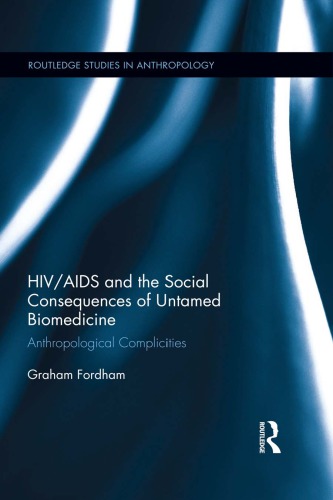

Most ebook files are in PDF format, so you can easily read them using various software such as Foxit Reader or directly on the Google Chrome browser.
Some ebook files are released by publishers in other formats such as .awz, .mobi, .epub, .fb2, etc. You may need to install specific software to read these formats on mobile/PC, such as Calibre.
Please read the tutorial at this link. https://ebooknice.com/page/post?id=faq
We offer FREE conversion to the popular formats you request; however, this may take some time. Therefore, right after payment, please email us, and we will try to provide the service as quickly as possible.
For some exceptional file formats or broken links (if any), please refrain from opening any disputes. Instead, email us first, and we will try to assist within a maximum of 6 hours.
EbookNice Team

Status:
Available0.0
0 reviewsDrawing on the case of HIV/AIDS in Thailand, this book examines how anthropological and other interpretative social science research has been utilized in modeling the AIDS epidemic, and in the design and implementation of interventions. It argues that much social science research has been complicit with the forces that generated the epidemic and with the social control agendas of the state, and that as such it has increased the weight of structural violence bearing upon the afflicted.
The book also questions claims of Thai AIDS control success, arguing that these can only be made at the cost of excluding categories such as intravenous drug users, the incarcerated, and homosexuals, who continue to experience extraordinarily high levels of levels of HIV infection. Considered deviant and undeserving, these persons have deliberately been excluded from harm reduction programs.
Overall, this work argues for the untapped potential of anthropological research in the health field, a confident anthropology rooted in ethnography and a critical reflexivity. Crucially, it argues that in context of interdisciplinary collaborations, anthropological research must refuse relegation to the status of an adjunct discipline, and must be free epistemologically and methodologically from the universalizing assumptions and practices of biomedicine.